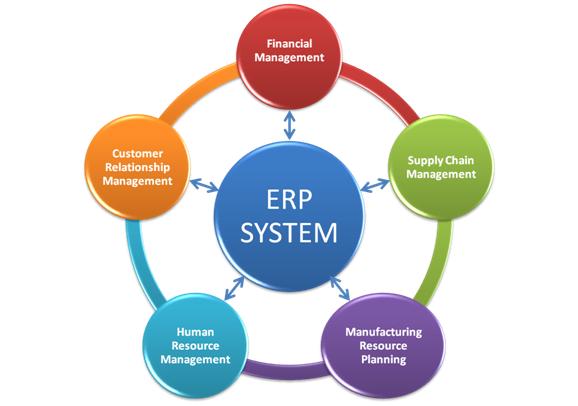The key to improving the bottom line of any business is to use available resources efficiently, so you can accomplish more while using less. But being more efficient requires careful planning to find out what works and where you can trim excess resource utilization without sacrificing results.
This is where enterprise resource planning comes in. Most businesses work with a finite equation: It takes x amount of resources a, b and c to produce product or service z. The only way around this is to innovate, or find better ways to reach the end goal. When you’re using fewer resources to achieve the same result, your profit margin will increase per unit or service sold. It’s basic algebra, but you must first find the right catalyst to change the equation.
Highlights of Contents
What is Enterprise Resource Planning?
Enterprise resource planning (ERP) is a system for integrating resources across several (ideally, all) departments to manage both internal and external information for better planning. This can include:

- Customer relationship management (CRM)
- Sales and marketing
- Customer service
- Finance and accounting
- Human resources
- Supply chain and project management
By compiling all this data in a central location, companies have an overall view of the total resources being utilized and allocated to various departments. There’s a more efficient flow of information between departments, simplifying decision making and enhancing the management team’s capability to reallocate resources in unforeseen situations.
Perfecting Business Processes
ERP offers a constant overview of the total functionality of an enterprise, based on the most efficient processes identified. This drastically reduces project management requirements, such as documentation, analysis and testing.
Analyzing current processes and identifying areas for improvement before implementing ERP can help identify areas for possible innovation and uncover more effective methods for achieving end results. When ERP is implemented, the process is more streamlined and the company is guided in utilizing the most efficient processes and best practices.
Eliminate Consulting Costs with a Single Integrated Solution
Many companies turn to the most obvious choices when it comes to resource management for various departments. QuickBooks may be a choice for financial management, for instance, while Fishbowl may be used to track inventory. But because these two programs don’t integrate well together, it can be difficult to analyze these components together and get a clear picture of where an organization stands in terms of resource utilization.
In these cases, companies either spend hours trying to compile data into a central location and use programs like Microsoft Excel to try to analyze the information or they spend thousands of dollars on an outside consultant, who can come in and configure reports that make sense. In either case, it’s a poor use of resources and can be quite costly.
ERP software can be configured to meet business reporting requirements. These software solutions can generate reports that not only present data, but present it in such a way that it’s usable. This actionable data enables better decision-making and allows companies to allocate their resources in the most efficient way possible, altering the equation to boost the profit margin and the company’s bottom line.
Author Bio
Angela LaRoche, an avid tech blogger for a variety of publications, is always looking for new ways to help companies enhance their mobile field services with new technologies like Dynamics GP Atlanta.


Just searching for the results of ERP my eyes fell on this link. This blog provided me an insight into what ERP means and the way I can utilize it for my business progress. Simple to comprehend, this blog cleared my ideology about the kind of planning required.
Posting some great know hows on ERP this post cleared my mindset on the issue. For a long time was searching something informative and my quench for knowledge ended on this post.
Keep posting such information which can be helpful for first-timers like me.